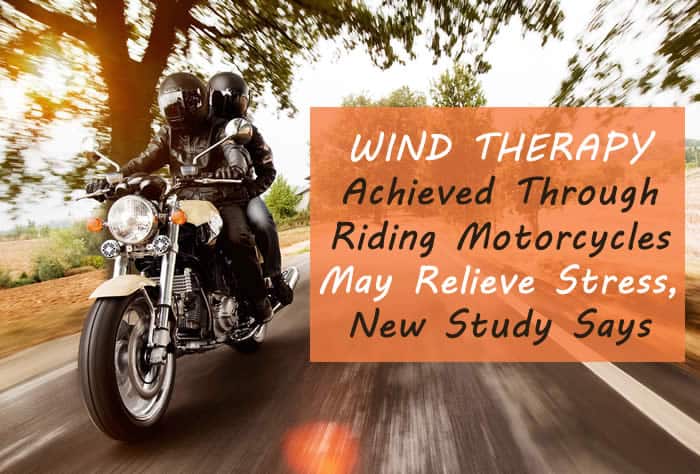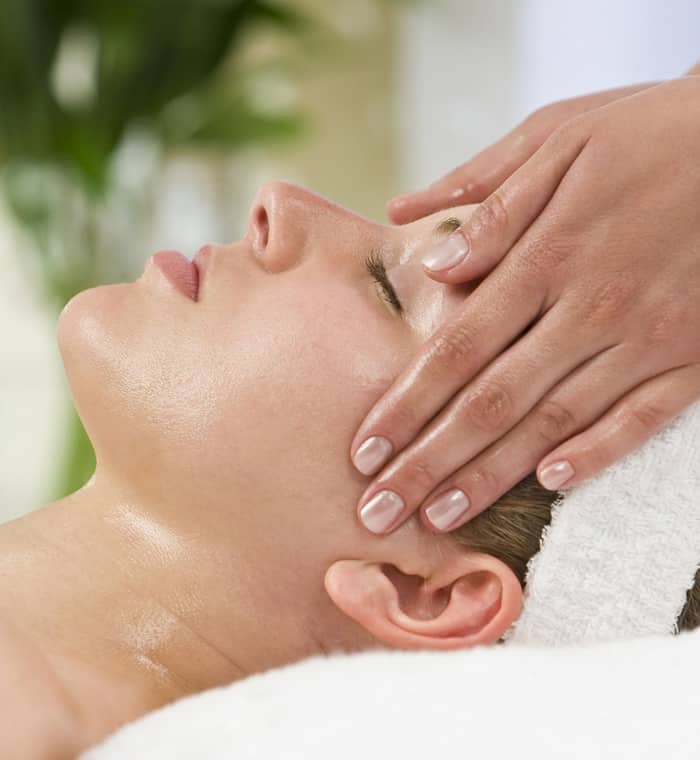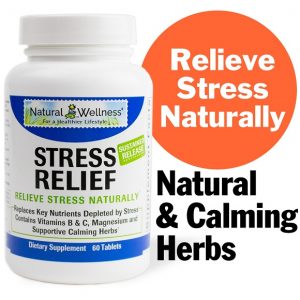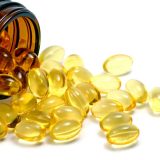

Before you sell all your material goods in exchange for a Harley and the open road, let’s break down what this study means. We’ll consider the many pros and cons of riding a motorcycle, as well as suggest a few safe and natural alternatives to relieve stress.
The Study
Using mobile EEG devices, researchers monitored electrical brain activity and heart rate, in addition to adrenaline levels, noradrenaline levels, and cortisol levels – and asked participants to either ride a motorcycle, drive a car, or rest, while they collected data.
According to the numbers, our leather-clad biker enthusiasts may be reaping some serious mental health benefits out on the open road.
Motorcycling can:
- reduce stress
- increase heart rate
- and increase focus and alertness (1).
It was observed that, while riding motorcycles, participants showed decreased relative levels of cortisol, which is a hormonal marker of stress and anxiety.
In Collaboration with Harley?
While everything in the study sounds well and good, this research should be taken with a grain of salt. Let us not forget the collaboration with Harley Davidson should cast a shadow of skepticism over its findings.
But beyond who was behind the experiment, there were some limitations to its scope that feel a bit by design. The amount of stress being monitored on motorcycle is being compared to other data from people sitting in cars, and people doing nothing. We’re guessing those aren’t very high biomarkers to exceed.
Also, variables like location and different kinds of bikes and gear may also hinder the reputability of the experiments by other teams of researchers.
Crash Risk
Furthermore, there’s no mention of motorcycle crash statistics, which are absurdly high as exemplified in a recent Forbes headline that read “Motorcycle Deaths Down, But Still 28 Times More Frequent Than Other Fatal Crashes.” Not to mention the steady 5,000 or so motorcycle-related deaths every year for the past decade according to the Governors Highway Safety Association.
If you already ride a motorcycle, lucky you. This study certainly registers in the win column and may help you win a fight or two with your significant other in the future.
But, if you don’t, the practicality of buying, operating, and not crashing a motorcycle, may not be worth the health benefits, especially if you ponder some of the more cost-conscious and highly effective alternatives to relieving stress.
5 of the Best Ways to Relieve Stress Fast
Consider the following healthy and natural options to manage stress and anxiety that don’t potentially involve road rash.
1. Supplements
Taking supplements is an easy way to ensure you’re getting the right amount of vitamins, minerals, and nutrients you need. Natural Wellness’s Stress Relief includes all natural stress calming herbs such as valerian, hops and skullcap, and provides stress relief for the entire day. Supplements are a time and cost effective way to manage any stress or anxiety you feel – in a healthy way.
2. CBD Oil
CBD, or cannabidiol, is one of over 100 chemical compounds found in marijuana. It’s unique in that it provides many natural medicinal benefits such as stress and anxiety relief, without some of the unwanted psychoactive properties or “high feelings” associated with the more well-known THC that gets inhaled when marijuana is smoked.
CBD is also an anti-inflammatory agent, a sleep aid, and helps eliminate fat in your liver which helps prevent liver disease.
And, to top it off, CBD oil is also extremely cost-effective and easy to use, as opposed to the Harley.
3. Mindfulness
Researchers out of Florida State University used a group of 51 students as their sample pool and found that practicing mindfulness in everyday tasks translates into a “decrease in nervousness by 27 percent and an increase in mental inspiration by 25 percent. The control group, on the other hand, didn’t experience any benefits.”
It’s not so a far stretch to extrapolate these findings to use mindfulness in any daily chore such as cleaning or doing the laundry. Do the chores and work on your wellness. Sounds like a great deal to us.
4. Get a Massage

While it may be one of the pricier alternatives to “wind therapy,” it should not be your last and it’s certainly cheaper than a chopper. Not only can massage therapy work out the knots, but it also increases levels of oxytocin, a.k.a. the cuddle hormone and one that decreases levels of stress-related hormones.
5. Walking
The motorcycle study purports that “on average, riding a motorcycle for 20 minutes increased participants’ heart rates by 11 percent and adrenaline levels by 27 percent—similar to light exercise.” But there may a convincing argument that going on a light walk around the neighborhood for 20 minutes a day is far safer than riding a motorcycle, is less expensive, and still yields similar health benefits.
Conclusion
Let this new study be a lesson. We’re always able to find ways to validate and legitimize the things we love to do. And the things we love are not always wholly bad. There are always two sides to every study.
But if the goal is stress relief and anxiety reduction, riding a motorcycle may be one of the most expensive and outright life-threatening ways to achieve it.





